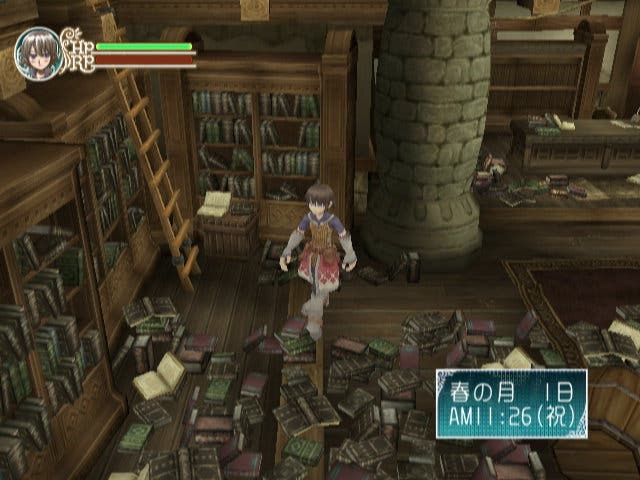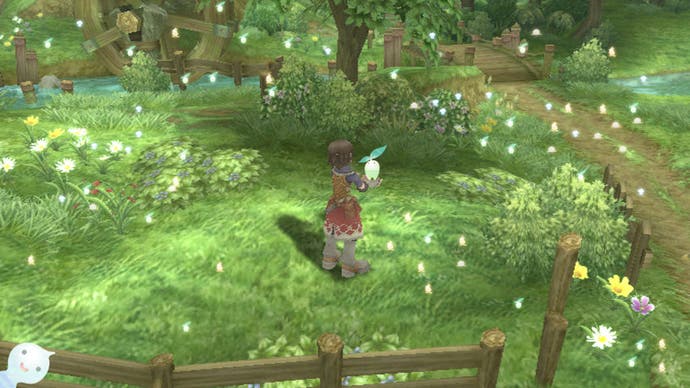Rune Factory Frontier
Agricultural revolution.
They don't - Rune Factory doesn't track the passing of real-world time the way Animal Crossing does - but the non-prescribed nature of your options fosters an emotional investment in your particular Trampoli. I found myself drawn into the burgeoning complexity in a way that meant I began to really care about turning out a crop of a particular girl's favourite flower, curious to see just how much she'd put out for the product of the sweat of my brow and some animal manure.
Getting married is one of Rune Factory's endgames, much as it was in Harvest Moon. You can play it straight and narrow, cultivating a single relationship to fruition like so much prize brassica, or play the dilettante and weigh up your romantic options first, seeing if you can persuade the tubby but domestically dedicated Eunice to drop a few pounds before you decide between her and the coy nurse/nun who patches up your wounds and sniffles.
Rune Factory isn't a game that excels at the depiction of equality. There are some strong female characters, but unless they're married or nigh-on mummified then they'll be gasping for a bit of male attention, indicating their emotional responses in anime-styled sweats, hearts or teardrops as you work your rough-handed farmer's magic on them. It's a minor point, and nobody ever claimed that Rune Factory was a tool for domestic emancipation, but some of the stereotypes grate a bit in what is otherwise quite a wryly-observed experience.

In practical terms, the farming and combat themselves are satisfying and well-implemented. A bright blue cursor indicates what you're aiming at with your current tool or weapon, while button prompts in the lower-left of the screen show what action you'll perform. The controls are precise and enjoyable, with waggle entirely optional in its already minor role. There'll be no fanfares about the simple combat - it's functional without being flamboyant - but the addition of monsters and dungeons adds another solid dimension to play rather than feeling tacked on.
Anyway, the review score beckons, and I've hardly scratched the surface. I've not even mentioned the system of Runes and Runeys, tiny field spirits whose propagation and balance must be mastered as you progress in order to maximise crop output. There's fishing too, and that massively expansive crafting system. Special events, competitions, secret areas. Masses and masses and masses of content. So much so, in fact, that it can all become a bit overwhelming, settling into a miasmic grind all too easily if you lose focus.

To help you get a handle on it all there's a fairly helpful if poorly presented online help system in the form of a library. The books offer basic guidance on various aspects of the game, as well as hints about its deeper mysteries. It too hardly scratches the surface.
If you're still not convinced about the hardcore credentials of Rune Factory: Frontier, bear this in mind. I took in a walkthrough, pointing myself in the right direction occasionally to ensure I gave the game a fair chance. It was 85,000 words in length. That's about seven university dissertations. Both its length, and that the dedication required of the author was so readily given, speak volumes about just how immersive, involving and consuming this game can be.
This is arguably the most involving non-linear RPG available on Nintendo's flagship system. As a non-Harvest Moon fan, I found myself thoroughly engrossed in what I had assumed were dry and pointless cycles of seasons, affections and upgrades, which instead make Rune Factory so irresistible. If you've ever enjoyed a game in the extended series, this is a no-brainer. If not, try it, because you just might like it.
